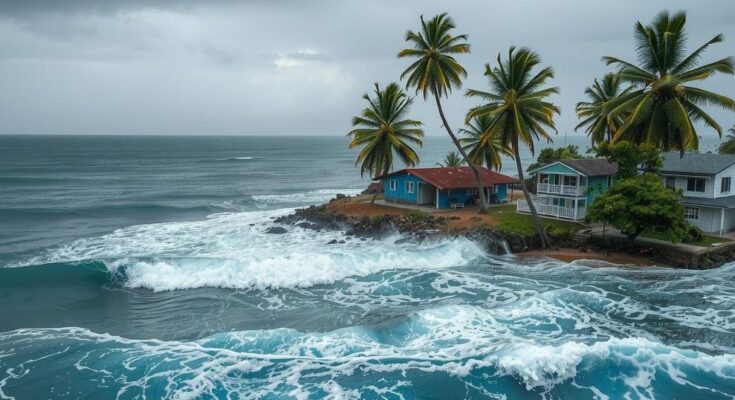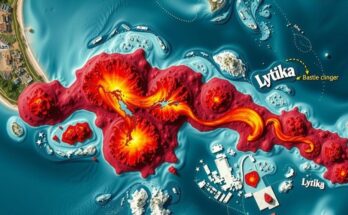Cyclone Chido in Mozambique has resulted in a death toll of 75, nearly doubling previous reports. The storm has devastated the already conflict-affected Cabo Delgado province, with severe destruction hampering rescue efforts. The ongoing risks from climate change and repeated cyclones pose further challenges to vulnerable communities in the region.
The devastating impact of Cyclone Chido in Mozambique has resulted in a significant rise in the death toll, now recorded at 75, nearly double the earlier figures reported. Rescue operations in the northern province of Cabo Delgado revealed extensive destruction, exacerbated by a prior years-long insurgent conflict that had already displaced hundreds of thousands. The cyclone, which struck early in the week, led to at least 69 fatalities and left over 740 individuals injured, as reported by Mozambique’s National Institute for Natural Disasters. Rescue workers have experienced challenges accessing rural communities due to the severe damage inflicted on infrastructure, making their efforts increasingly difficult.
In the hard-hit district of Mecufi, most structures were completely destroyed, with the United Nations’ refugee agency noting the area described as “utter destruction” by reporting officer Isadora Zoni, who details a landscape of flattened buildings and ruined communities. Mozambique, one of the poorest nations facing vulnerability to climate change, has been historically affected by cyclones, suffering repeated onslaughts from storms in the southern Indian Ocean. Images from Zoni depict mud walls washed away and timber homes reduced to rubble, underscoring the dire conditions faced by residents.
The cyclone posed additional threats to displaced populations in the Cabo Delgado region, with at least 10,000 individuals affected in Chiure, already living in precarious conditions following insurgent attacks. As Cyclone Chido advanced with wind speeds reaching up to 115 miles per hour, it also impacted Mayotte, a French territory, where fatalities have been confirmed. As the storm dissipated over landlocked Zimbabwe, concerns remain for potential future cyclones and severe flooding during this rainy season, further threatening Mozambique’s vulnerable communities.
Cyclone Chido’s emergence in Mozambique highlights the intersection of climate-induced disasters and ongoing societal unrest, specifically in Cabo Delgado province. This area has already been afflicted by a protracted insurgency, resulting in significant displacement and humanitarian crises. Mozambique is frequently subjected to severe weather phenomena, and past storms such as Tropical Cyclone Freddy and Cyclone Gombe have notably affected the nation, leading to loss of life and extensive displacement. The ongoing impacts of climate change continue to exacerbate existing vulnerabilities within the country, putting additional strain on resources and recovery efforts.
In summary, the toll of Cyclone Chido on Mozambique reveals a catastrophic situation marked by increased fatalities and extensive infrastructure damage. The cyclone’s impact is further complicated by the pre-existing conflict in Cabo Delgado, leading to heightened vulnerability among displaced populations. As Mozambique braces for an intense rainy season, the government and humanitarian organizations face significant challenges in providing adequate relief and response measures to mitigate the effects of both climate change and societal instability.
Original Source: www.nytimes.com




